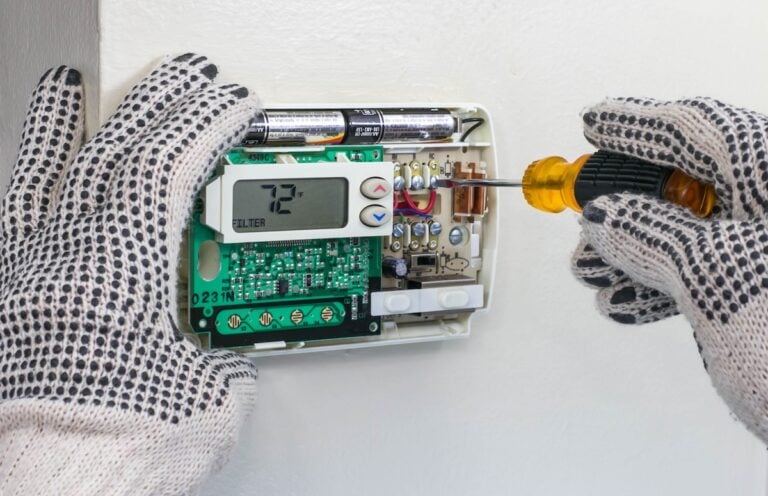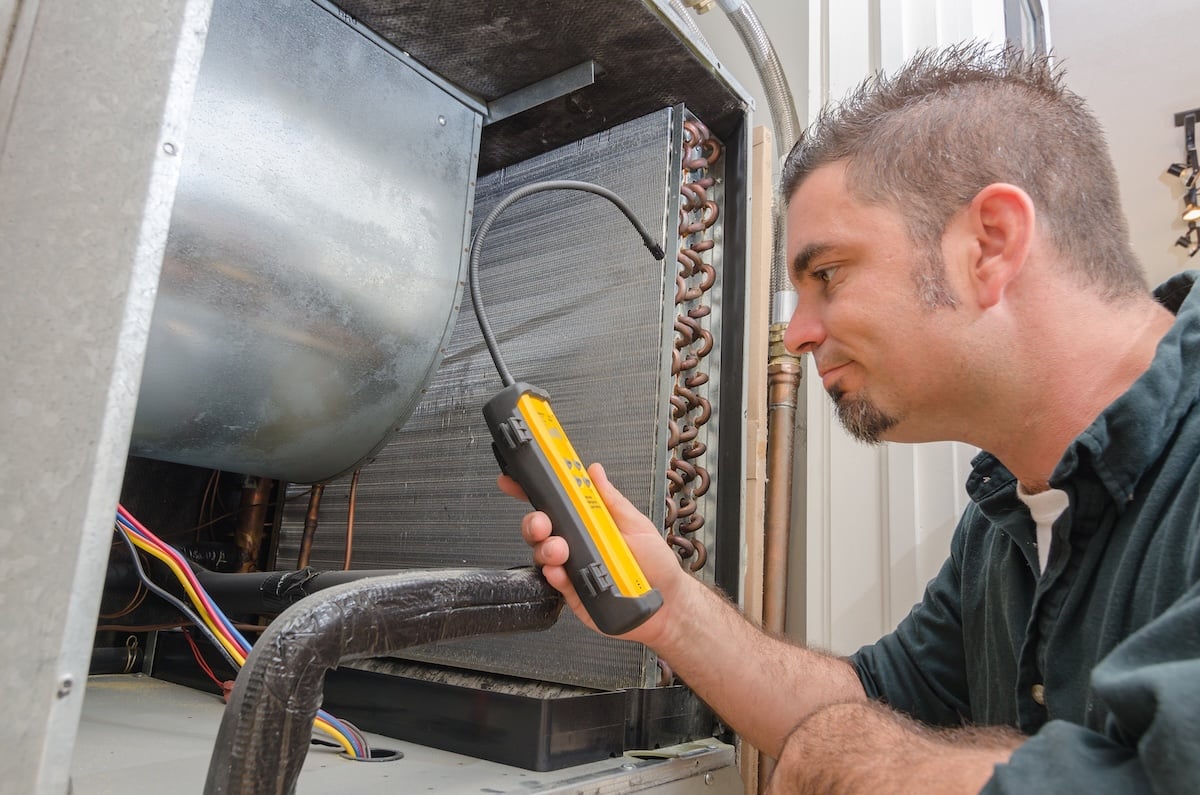
Ever wondered about those four letters you see on your energy bills and hear from contractors? What does HVAC stand for is one of the most common questions homeowners ask when dealing with home comfort systems. Understanding these essential systems can help you make informed decisions about your home’s heating, cooling, and air quality.
This comprehensive guide will cover:
- The complete meaning behind HVAC and its components
- Why understanding your HVAC system matters for homeowners
- Different types of HVAC systems and how they work
- Essential maintenance tips to keep your system running efficiently
- When to call professionals for repairs or replacements
🏠 Why Understanding HVAC Is Important
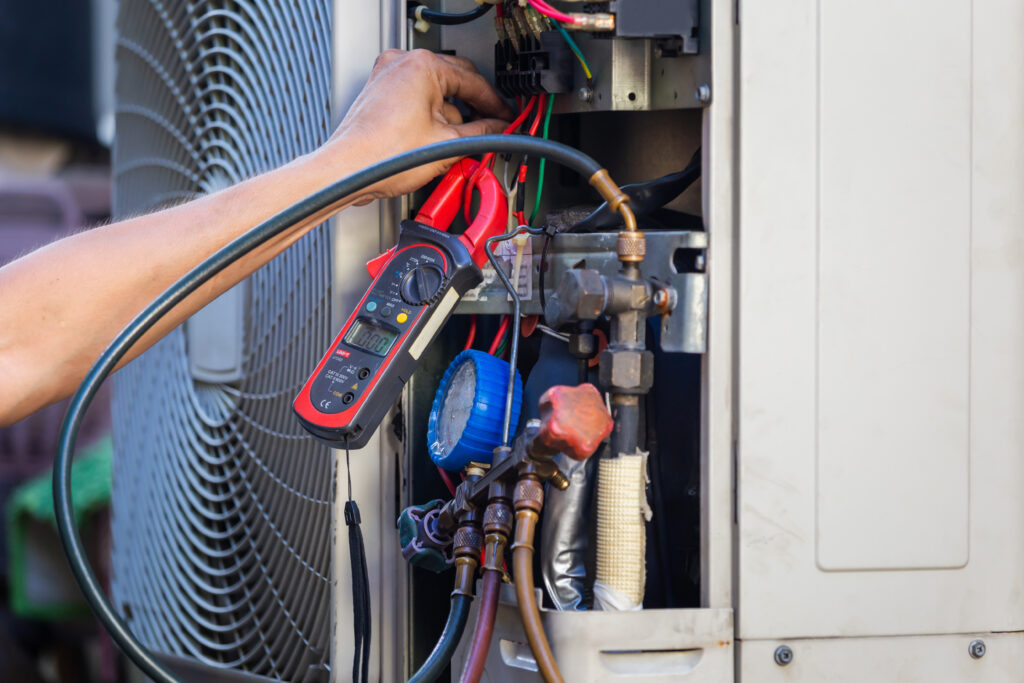
Your HVAC system represents one of your home’s most significant investments and energy consumers. Understanding what HVAC stands for and how these systems work empowers you to make smart decisions about maintenance, repairs, and upgrades.
Most homeowners don’t think about their HVAC system until something goes wrong. However, having basic knowledge about these systems can save you money and prevent uncomfortable situations.
Key benefits of understanding your HVAC system include:
- Lower energy bills through proper maintenance and efficient operation
- Extended equipment lifespan by recognizing warning signs early
- Improved indoor air quality for better health and comfort
- Informed decision-making when speaking with contractors
- Enhanced home value through well-maintained systems
🔧 What Does HVAC Stand For?
HVAC stands for Heating, Ventilation, and Air Conditioning. These four letters represent the three core functions that keep your home comfortable year-round. Each component plays a crucial role in maintaining optimal indoor temperature, air quality, and humidity levels.
Understanding these individual components helps you communicate effectively with service technicians and make informed decisions about your home’s comfort systems.
H – Heating
The heating component includes furnaces, heat pumps, boilers, and radiant heating systems. These systems warm your home during cold months by distributing heated air or water throughout your living spaces.
- Gas furnaces burn natural gas to heat air that circulates through ductwork
- Electric furnaces use electrical resistance to warm air before distribution
V – Ventilation
Ventilation systems exchange indoor air with fresh outdoor air while filtering out pollutants, allergens, and excess moisture. Proper ventilation prevents stale air buildup and maintains healthy indoor air quality.
- Natural ventilation relies on windows, doors, and architectural features
- Mechanical ventilation uses fans and ductwork to control airflow
A – Air Conditioning
Air conditioning systems cool and dehumidify indoor air during warm weather. Modern AC units also filter air to remove dust, pollen, and other airborne particles.
- Central air systems cool entire homes through ductwork
- Ductless mini-splits provide targeted cooling for specific areas
C – Additional Considerations
While not always included in the acronym, many HVAC professionals include “Control” as the fourth component, referring to thermostats and smart home integration systems that regulate temperature and system operation.
- Programmable thermostats allow scheduled temperature adjustments
- Smart thermostats learn your preferences and optimize energy usage
⚙️ 4 Types of HVAC Systems and How They Work
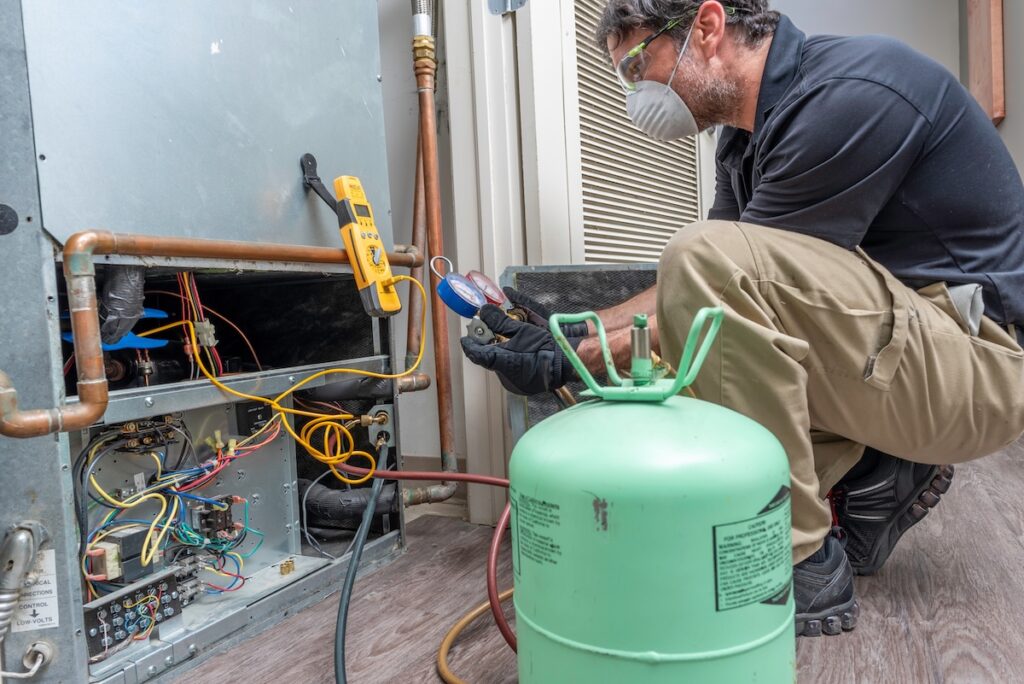
Modern homes utilize various HVAC configurations depending on climate, home size, and energy efficiency goals. Understanding different system types helps you identify what’s best for your specific needs.
Each system type offers unique advantages in terms of efficiency, installation costs, and maintenance requirements. The right choice depends on your home’s layout, local climate, and budget considerations.
1. Central HVAC Systems
Central systems use ductwork to distribute conditioned air throughout your home. These systems typically include a furnace or heat pump paired with an air conditioning unit.
Advantages:
- Consistent temperature control throughout the home
- Hidden components maintain clean aesthetics
- Can integrate air filtration and humidity control
Considerations:
- Requires existing ductwork or installation costs
- Less efficient for homes with poor duct design
2. Ductless Mini-Split Systems
Mini-splits provide targeted heating and cooling without requiring ductwork. These systems feature an outdoor compressor connected to indoor air handlers in individual rooms.
Advantages:
- Energy efficient with zone control capabilities
- Easier installation in homes without existing ducts
- Quiet operation with minimal maintenance needs
Considerations:
- Higher upfront costs for multiple zones
- Indoor units visible on walls or ceilings
3. Heat Pump Systems
Heat pumps provide both heating and cooling by transferring heat energy rather than generating it. These systems work efficiently in moderate climates but may need backup heating in extreme cold.
Advantages:
- Excellent energy efficiency in mild climates
- Single system handles both heating and cooling
- Environmentally friendly operation
Considerations:
- Reduced efficiency in very cold temperatures
- May require supplemental heating in harsh winters
🛠️ Essential HVAC Maintenance for Homeowners
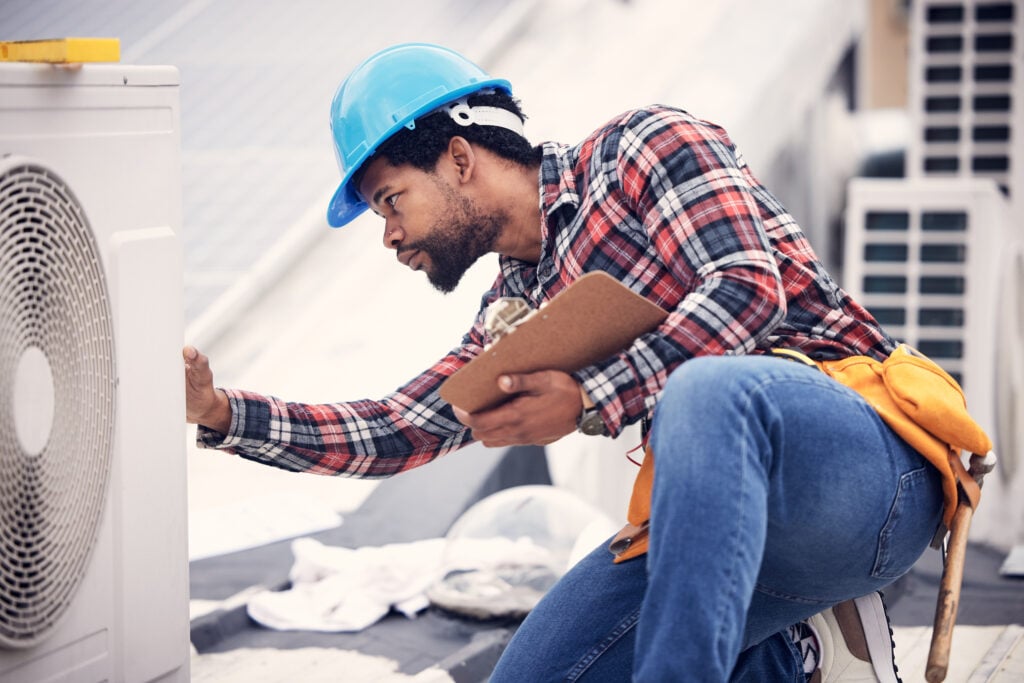
Regular maintenance keeps your HVAC system running efficiently while preventing costly breakdowns. Most homeowners can handle basic maintenance tasks, while others require professional service.
Proper maintenance extends equipment life, improves energy efficiency, and maintains healthy indoor air quality. Creating a maintenance schedule helps ensure you don’t overlook important tasks.
Monthly Maintenance Tasks
Filter Replacement:
Replace air filters every 1-3 months depending on usage and filter type. Dirty filters restrict airflow and force your system to work harder.
- Check filters monthly during peak usage seasons
- Use high-quality filters appropriate for your system
Thermostat Check:
Verify your thermostat is functioning correctly and batteries are fresh. Programmable thermostats should maintain their settings.
- Test both heating and cooling modes seasonally
- Clean dust from thermostat sensors
Seasonal Maintenance Tasks
Spring Preparation:
Prepare your cooling system before hot weather arrives. Clean outdoor units and schedule professional maintenance.
- Remove debris from around outdoor AC units
- Test system operation before peak cooling season
Fall Preparation:
Get your heating system ready for cold weather. Check safety features and ensure proper operation.
- Test heating system operation and safety features
- Clean vents and registers throughout your home
Professional Maintenance Services
Annual professional maintenance catches problems early and optimizes system performance. Qualified technicians have tools and expertise to service complex components safely.
- Comprehensive system inspections identify potential issues
- Performance optimization ensures efficient operation
- Safety checks protect your family from carbon monoxide and other hazards
🏡 Ready to Optimize Your Home’s Comfort System?
Understanding what HVAC stands for is the first step toward better home comfort and energy efficiency. Regular maintenance, proper operation, and timely repairs keep these essential systems running smoothly for years to come.
Your HVAC system works hard to keep your family comfortable year-round. Taking proactive steps to understand and maintain these systems protects your investment while ensuring reliable performance when you need it most.
Don’t wait until your system breaks down to get professional help. Contact Thelen Plumbing, Heating, and Air today to schedule a comprehensive system inspection and learn how we can help optimize your home’s comfort systems. Our experienced technicians provide honest assessments and reliable solutions for all your HVAC needs throughout Minneapolis and the Twin Cities Metro area.a
Unlock Our Limited-Time Deals!
Take advantage of our offers on AC tune-ups, new installs, repairs, and more.
We Can’t Wait to Help Your Home!
"*" indicates required fields



